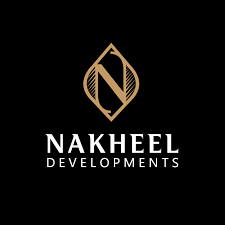
nakheel
nakheel
Core Evaluation
Comprehensive assessment of developer's core competencies
Track Record
Nakheel Properties was established in 2001 as part of Dubai World and was restructured under Dubai Holding Real Estate in March 2024. Its iconic contributions include Palm Jumeirah, The World Islands, Discovery Gardens, Jumeirah Village, Al Furjan, Deira Islands, Ibn Battuta Mall, Nakheel Mall, and Dragon Mart. The company continues to expand with megaprojects such as Palm Jebel Ali (handover expected 2026), Jebel Ali Village (Q4 2025), and large-scale developments on Dubai Islands. Nakheel has delivered over 45,000 residential units to date, with more than 2,000 under construction and 45+ buildings completed.
Financial Credibility
Nakheel is government-backed and now fully under Dubai Holding, ensuring strong financial support. It previously underwent a successful restructuring after the 2008 financial crisis. In recent years, the company secured AED 17 billion in funding (AED 11B refinance + AED 6B for expansion). In 2025, it awarded AED 5 billion in construction contracts for Palm Jebel Ali villas. As of 2023, Nakheel reported AED 6.8 billion in revenue and AED 1.8 billion in net profit — both showing healthy year-on-year growth.
Project Quality
Nakheel is known for upscale, high-visibility developments that blend design innovation with large-scale engineering. Projects like Palm Jumeirah and Deira Islands use eco-conscious marine techniques such as reef preservation and natural shoreline construction. While luxury projects (Palm Jumeirah, Jumeirah Park) earn high marks, some mid-market communities (e.g., Discovery Gardens, Al Furjan) have seen more mixed reviews in terms of build quality.
Legal & Regulatory Standing
Nakheel adheres to all standard legal and regulatory protocols under the Dubai Land Department and RERA. There are no major current legal disputes or project-related enforcement issues reported in the past year. Legacy legal issues from the 2008 crisis were resolved, and the company’s compliance reputation has stabilized since then.
Customer Experience
Customer sentiment toward Nakheel is mixed, especially on social platforms and forums. Many tenants and buyers report dissatisfaction with administrative processes and after-sales service. Common complaints include delays in issuing Ejari contracts, poor responsiveness to maintenance requests, unclear billing for service charges, and inconsistent communication. Some users have reported legal notices related to unpaid fees that were allegedly caused by system errors. Others point to quality issues in mid-market units, such as poor finishes and fast wear-and-tear. Despite these concerns, Nakheel properties remain in demand due to their strategic locations and brand recognition, and real estate agents often continue to recommend their developments to investors. However, the gap between marketing promises and customer support delivery remains an area of ongoing criticism.
Market Reputation
Nakheel is widely recognized as one of the developers that transformed Dubai’s urban identity. The Palm Jumeirah alone is viewed globally as a pioneering megaproject. The firm is respected across industry channels for its contribution to Dubai’s real estate boom, but repeated consumer complaints about post-sale service have impacted its reputation in day-to-day management.
Innovation & Sustainability
Nakheel promotes itself as a sustainability-focused developer and has taken meaningful steps in environmental design, particularly for its waterfront and island projects. The company has relocated tens of thousands of coral colonies and implemented marine life conservation zones, especially around Deira Islands and Palm Jebel Ali. Across its malls and residential properties, Nakheel has adopted energy-efficient systems that reportedly saved over 6,000 tons of CO₂ and more than 16,000 MWh of electricity. Some developments feature LEED Platinum certification, while others integrate smart-city technologies such as IoT infrastructure, smart lighting, and app-based service management. Though not every project reaches the same level of eco-certification, sustainability appears to be a growing focus area within the company’s strategy.